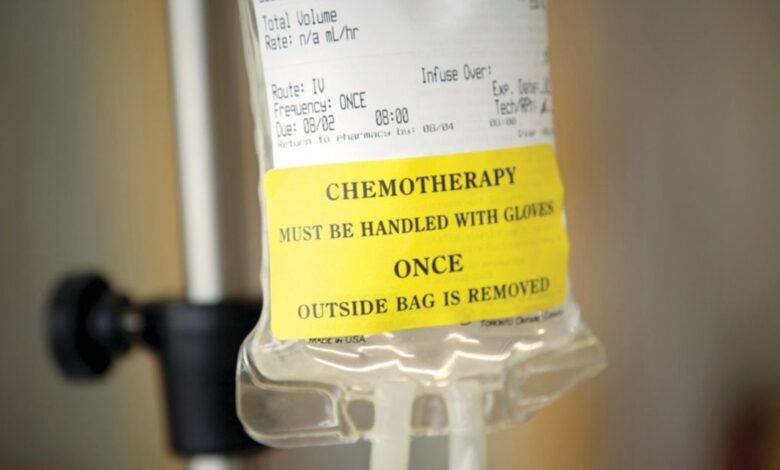Cancer treatment at home faces challenges after the pandemic

When COVID-19 hit the United States in early 2020, radiation oncologist Dr. Justin Bekelman was up for the challenge.
The director of the Penn Center for Cancer Care Innovation in Philadelphia and a team of clinicians have a plan in place to start the center’s Cancer Care at Home program. Within six weeks of launching in February 2020, the program has gone from treating 39 patients at home to more than 300.
“When the pandemic peaks in the summer, it is one of the main ways for breast cancer, prostate cancer, lung cancer and lymphoma patients to access treatment,” said Bekelman.
Today, Penn Medicine is providing care to approximately 3,000 patients through a program that uses 30 different cancer treatments, including chemotherapy and immunotherapy. The health system treats about 19,000 cancer patients annually.
Penn Medicine is not alone in adopting in-home cancer care. Over the past three years, several other health systems, including Jefferson Health in Philadelphia and Fairview Health in Minneapolis, Minnesota, have begun treating cancer patients at home.
Cancer treatment is big business and providing home care is not a new idea. It is estimated that 5% to 10% of cancer drugs are delivered at home globally, but the reality has been slow to gain traction in the United States.
About 1.8 million Americans are diagnosed with the disease every year. Cancer costs $209 billion to treat in 2020, making it the fourth most expensive disease, according to the National Cancer Institute. Delivering chemotherapy drugs and immunotherapy through infusion at home can save the health care system money by freeing up space in hospitals and outpatient settings.
Treating cancer patients at home can be more convenient and less stressful for patients, especially for those who may have to travel long distances to the facility. Fairview Health cares for cancer patients up to 60 miles from Minneapolis. The hospital cares for about 380 of its 2,500 patients at home.
Brett Benfield, Fairview’s director of home infusion, said brain cancer patients particularly benefit from home visits because many have difficulty moving around for treatment.
Despite the benefits, a white paper released by the American Cancer Society on Wednesday outlined some of the challenges in making cancer treatments more widely available at home, including concerns safety, economics, and patient acceptance.
For treatments that can be safely transported, stored, and delivered at home, the infusion nurse will visit the patient’s home to conduct the treatment. Although the nurse remains at home for the duration of the treatment, patients may experience adverse reactions after the clinician leaves. Patients treated at the facility usually stay on site for up to an hour for observation.
At home, “you are asking the patient and caregiver to be the eyes and ears and to know what to do,” said Dr. Arif Kamal, the cancer association’s patient director.
According to providers, while the economy is boosting home care, it can also get in the way. Although many private health insurance companies pay for home treatment, sometimes the reimbursement amount can be less. Large healthcare providers like Penn Medicine can make up the shortfall by freeing up extra beds for other patients. Lower reimbursements can be a financial challenge for smaller cancer operations that rely more on revenue from on-site treatment.
Providers and the American Association of Oncologists say Medicare is an even bigger problem. More than half of patients diagnosed with cancer are over the age of 65. Medicare Part D covers some of the cost of home infusions, but not all. That means patients who prefer home care have to pay for some of the costs themselves.
That not only discourages many patients from receiving treatment at home, but it can also contribute to inequities in healthcare.
Oncologist Jyoti Patel, editor of the website Cancer.net, said: ‘Performing treatments at home worries us. “It means that the rich can afford to be treated at home and the poor will not be accommodated.”
However, Patel said the home will be part of the future of cancer care once reimbursement issues are resolved and Medicare more fully accepts value-based care.
A new generation of suppliers is ready to enter the market. Nashville, Tennessee-based Reimagine Care launched early last year with $25 million in funding from six investors. The company is working with the University of Colorado at Denver and the Center for Cancer and Blood Disorders in Dallas to provide in-home services such as remote patient monitoring, water delivery, and testing services for cancer patients. letters. Reimagine Care co-founder and CEO Devin Carty says the company also wants to move select infusions into the home.




